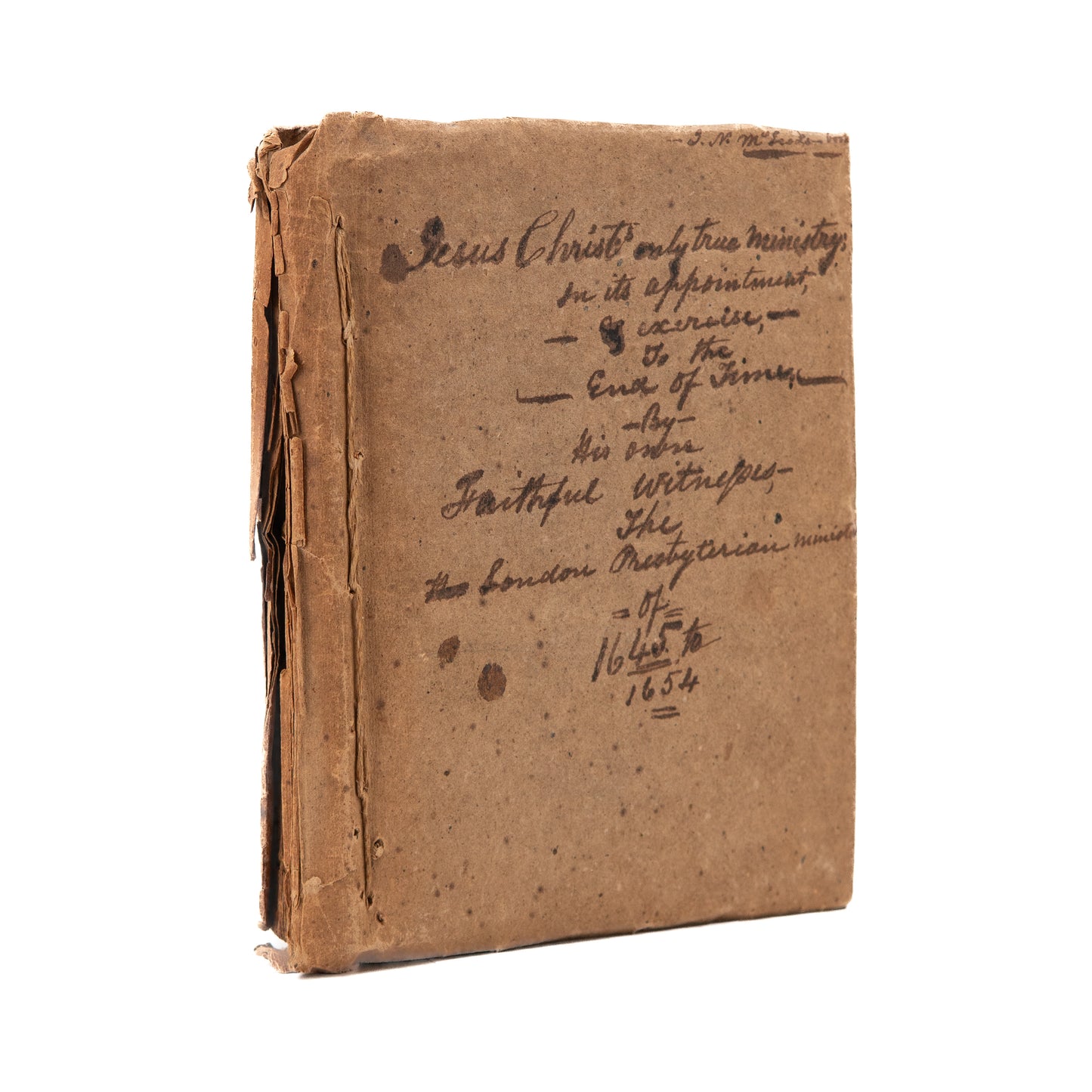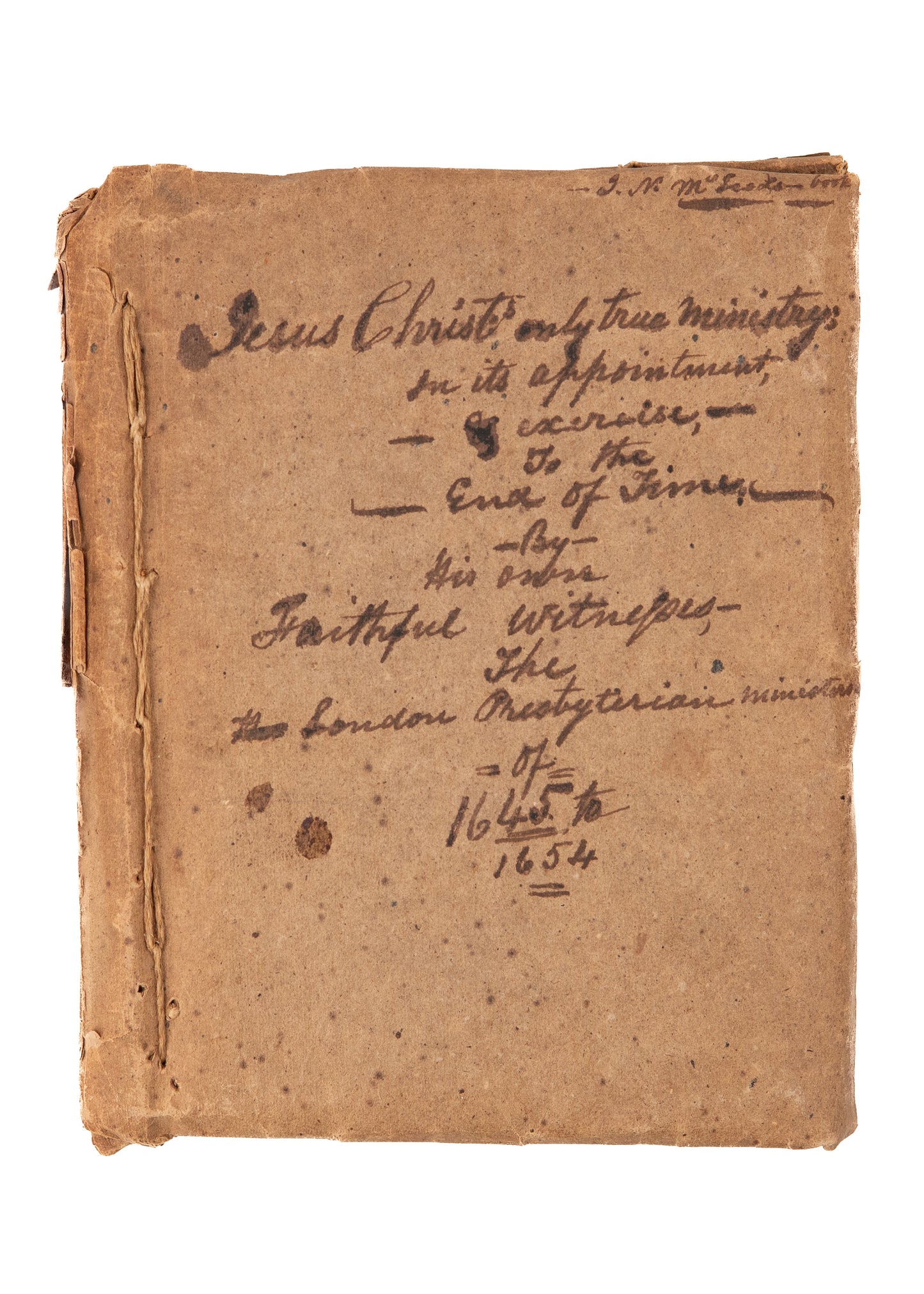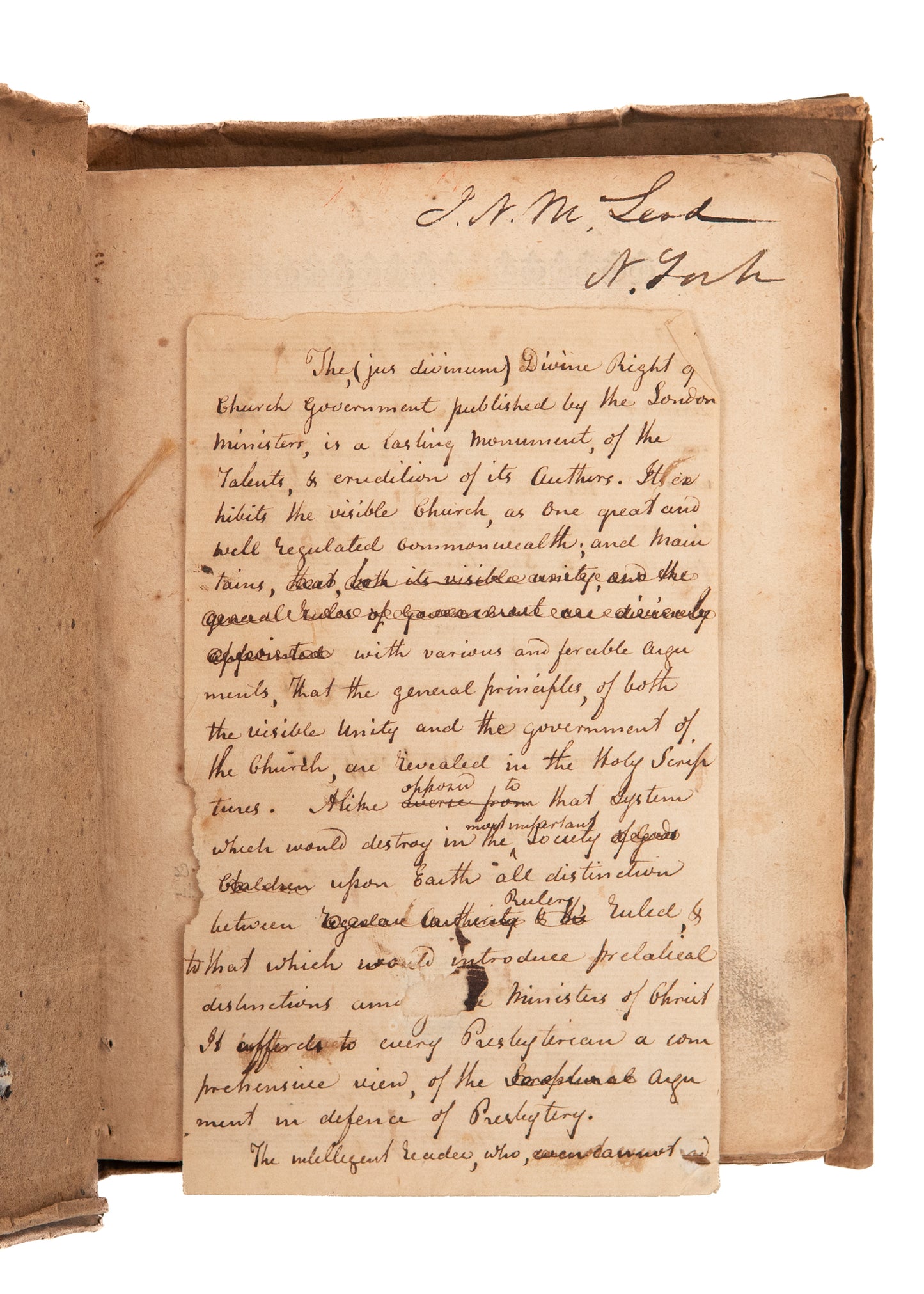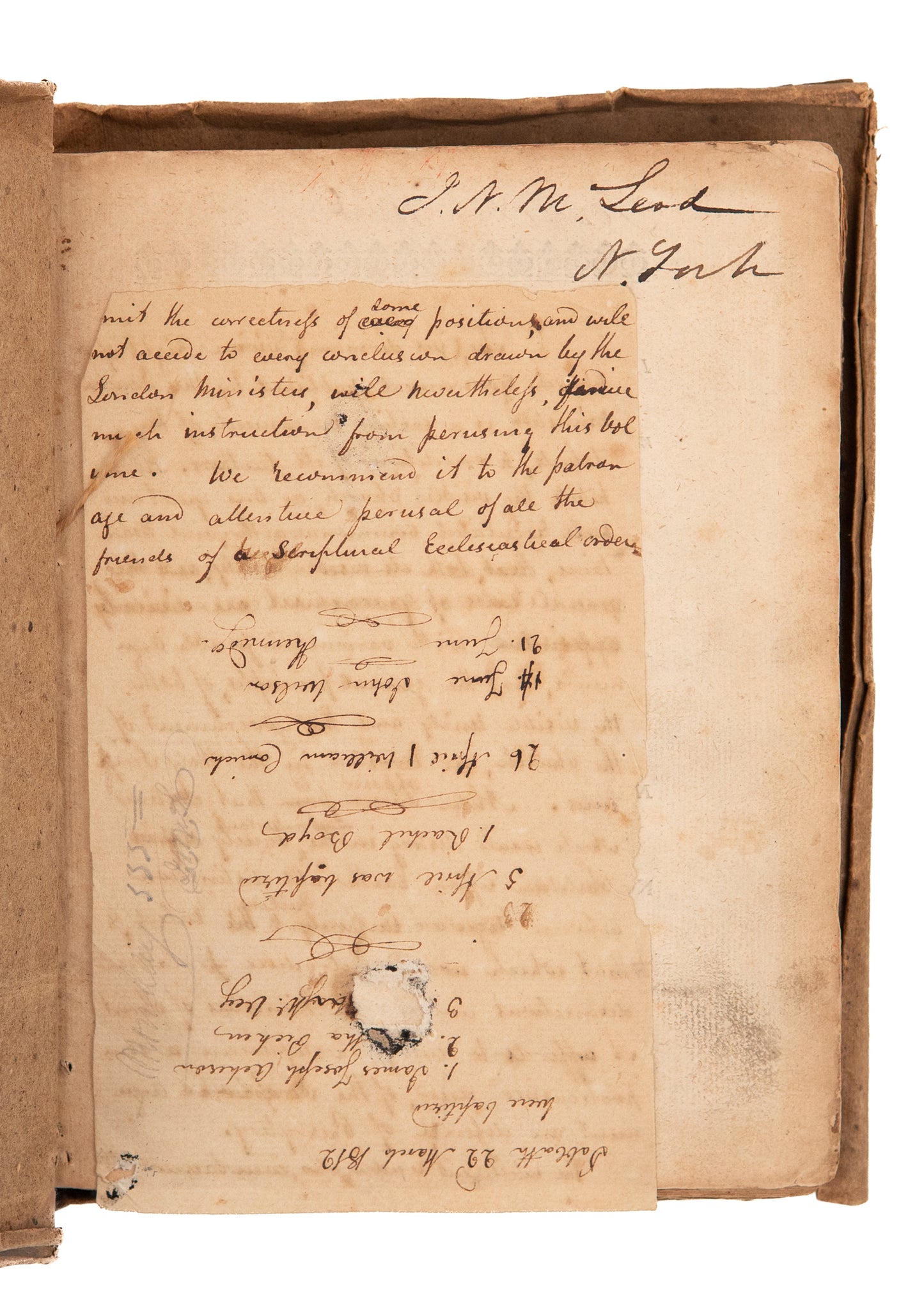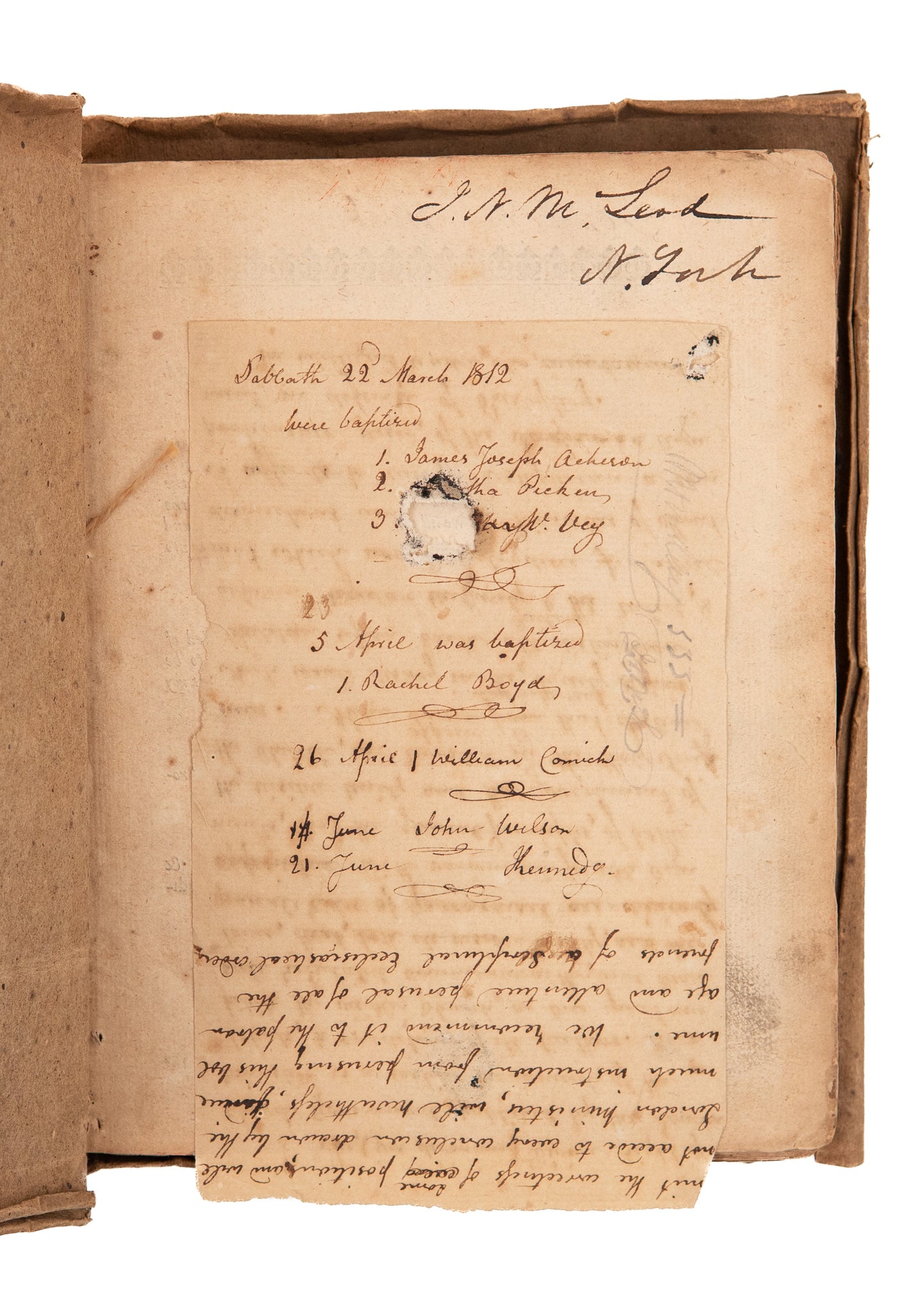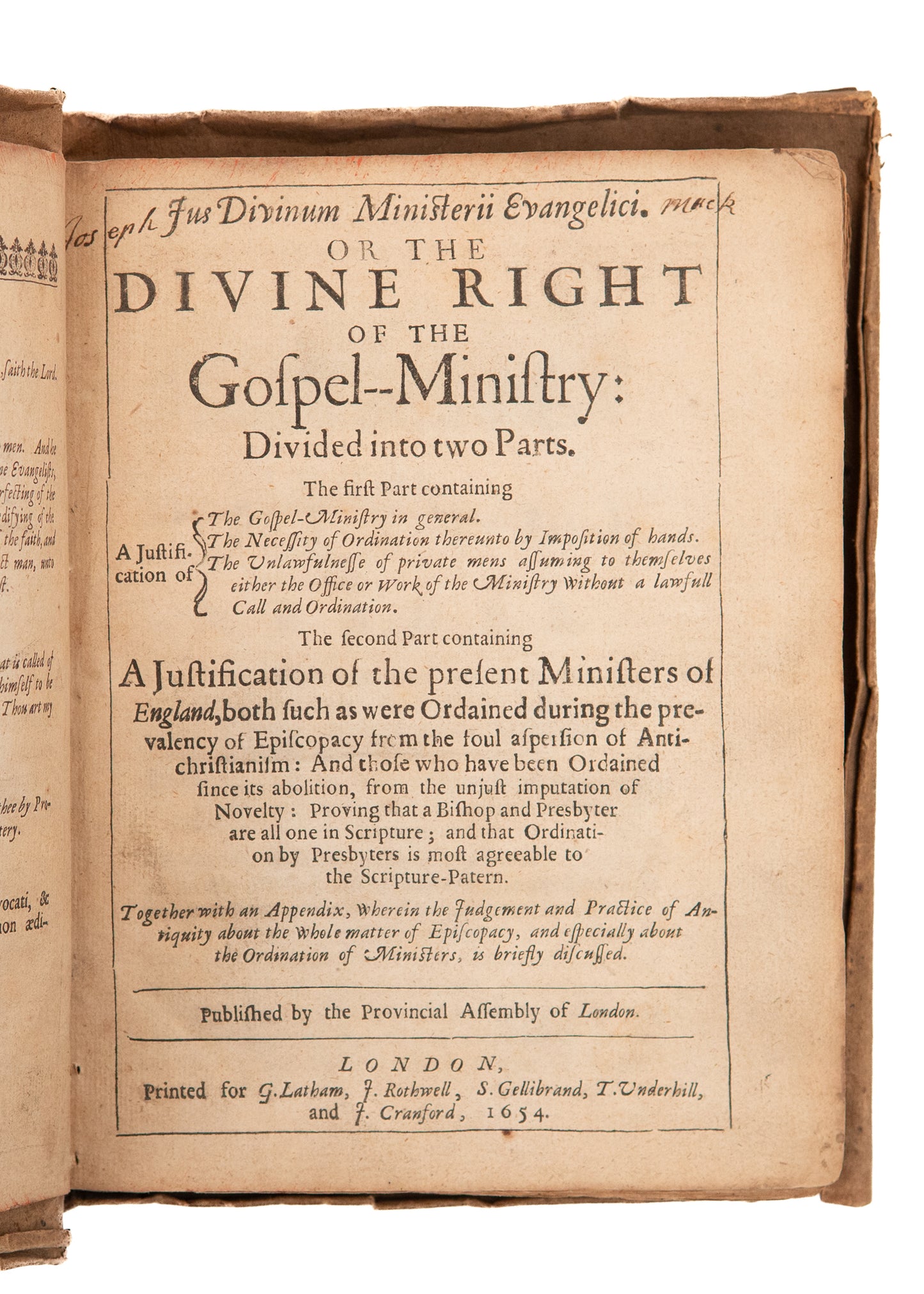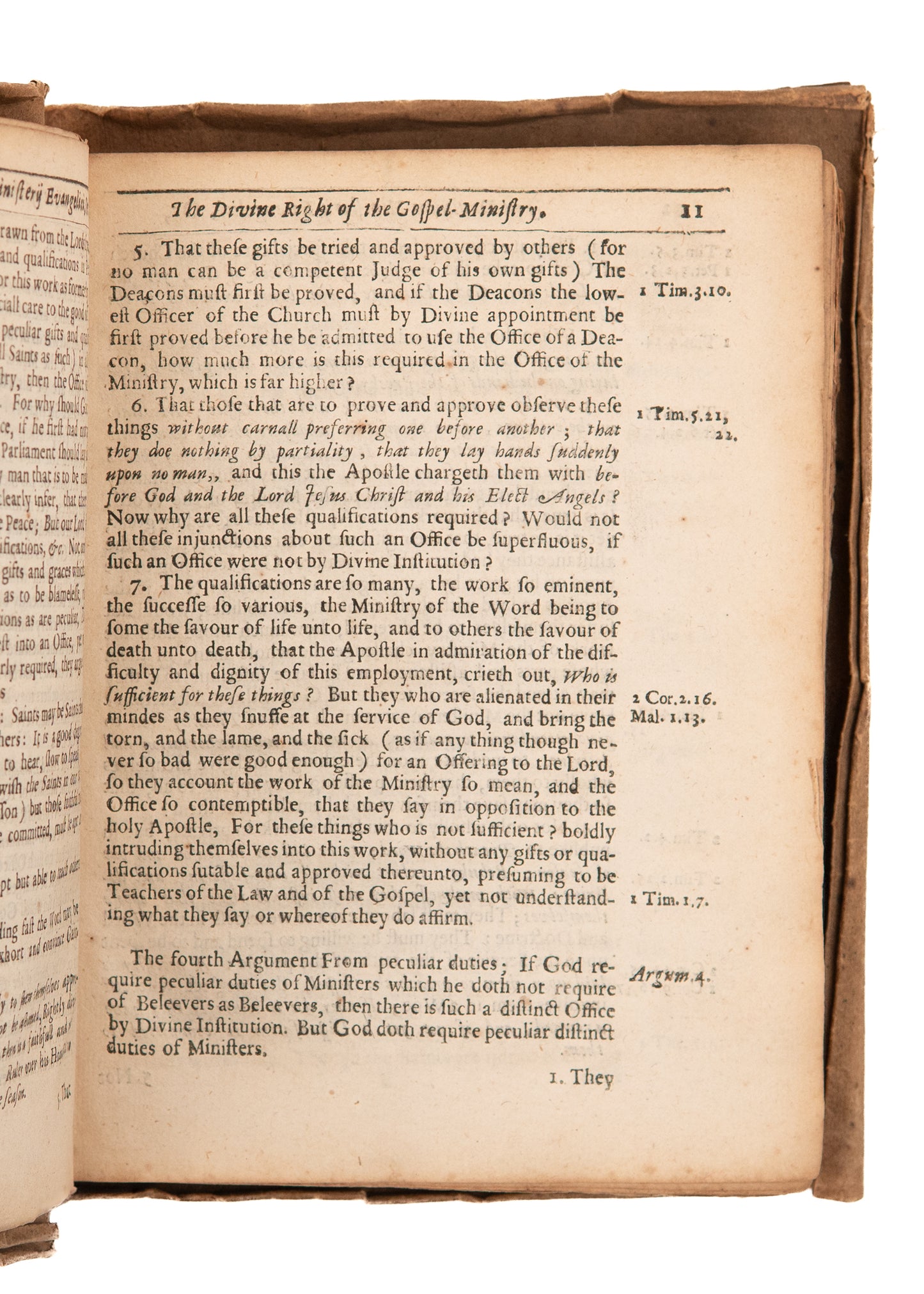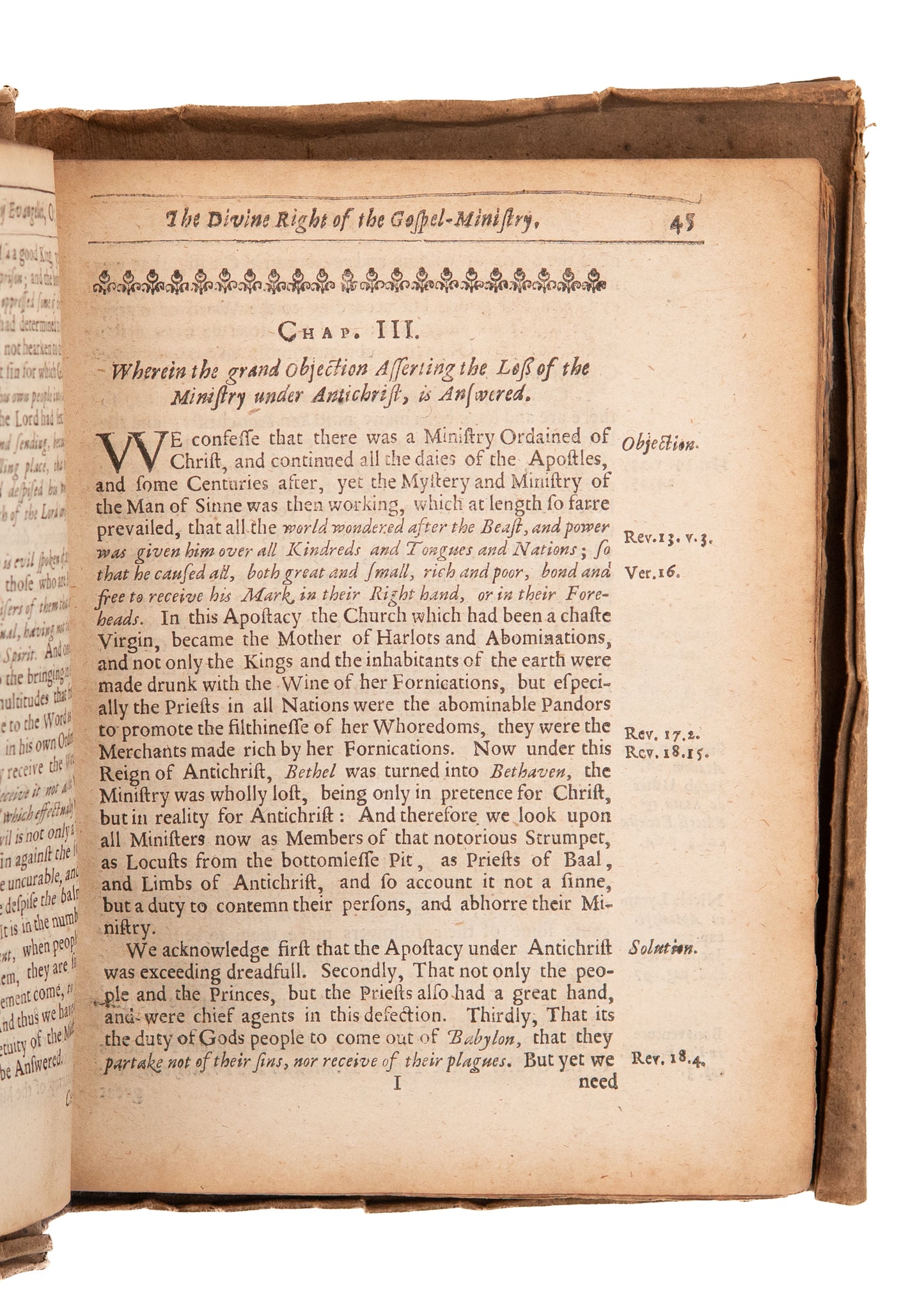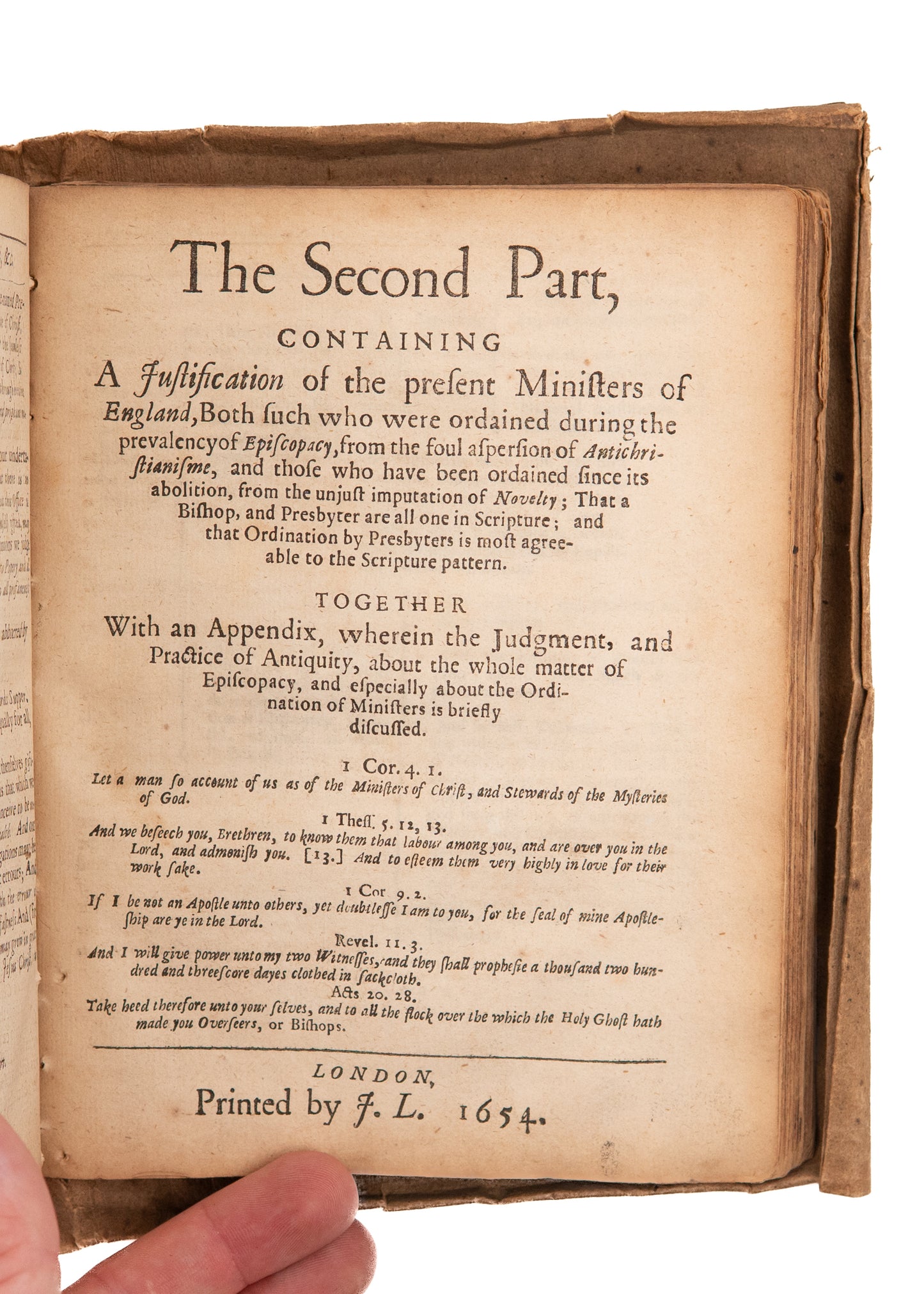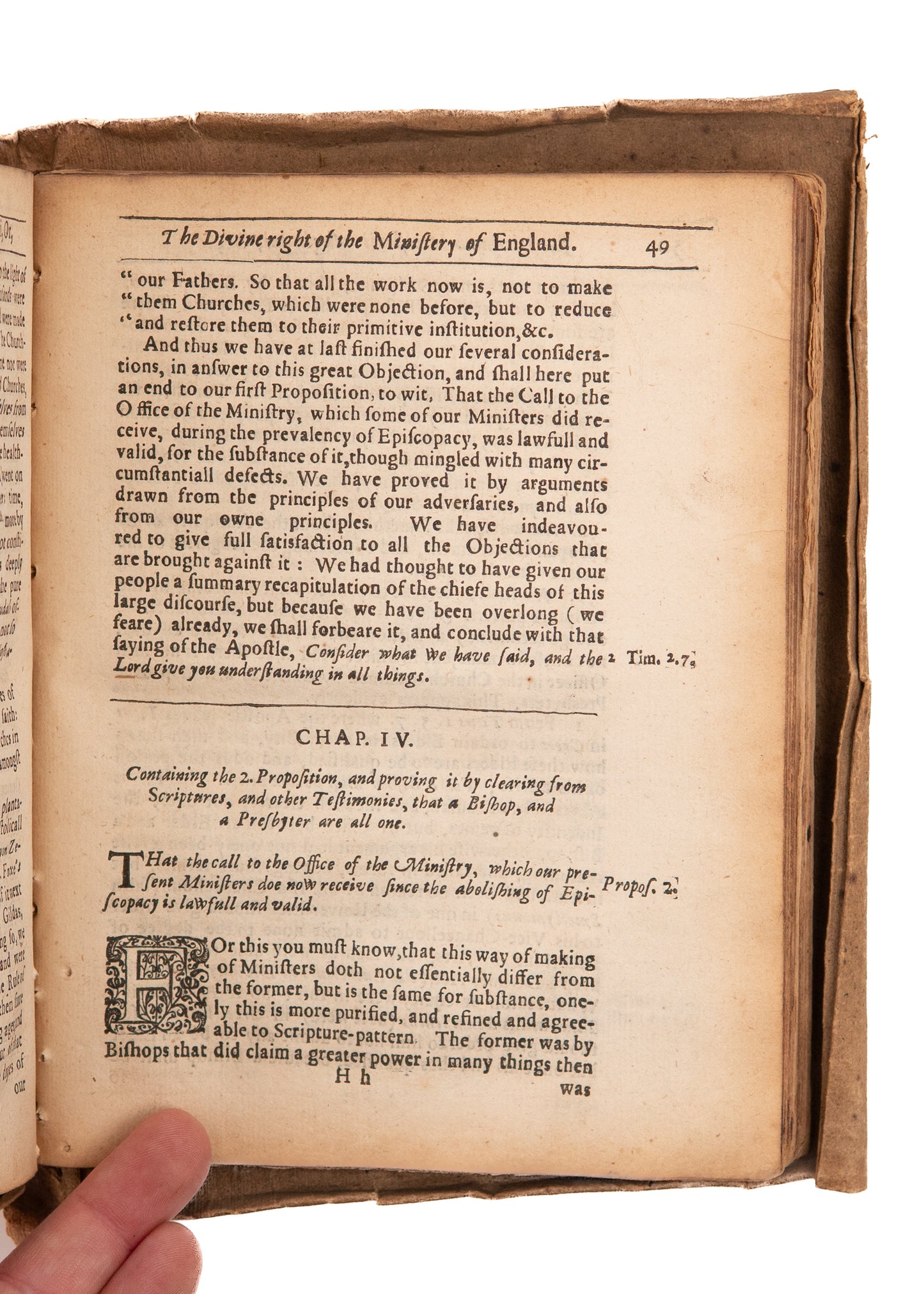Specs Fine Books
1654 WESTMINSTER ASSEMBLY The Divine Right of the Gospel-Ministry. Rare Radical Presbyterians on the Confession.
1654 WESTMINSTER ASSEMBLY The Divine Right of the Gospel-Ministry. Rare Radical Presbyterians on the Confession.
Couldn't load pickup availability
Perhaps the most significant articulation of the radical Presbyterianism of the branches of the Westminster Assembly Roger Williams and others found themselves resisting, and leading to the emigration of many Congregationalists, Baptists, and moderate Presbyterian divines to America.
Because of the “gag order” against publishing debated points during the crafting of the Confession by the Westminster Assembly, it was published anonymously. Thus the work could be viewed as the unofficial articulation of what many have argued the English Presbyterian wing of the Westminster Assembly really hoped to accomplish in the Westminster Confession . . . some even arguing that it is an interpretive guide to the Confession itself.
What is clear is that the authors clearly believed that Presbyterian ecclesiology was no mere “preference” nor was it “one possible interpretation” of the ecclesiastical data of the New Testament. Instead, they affirm Presbyterianism as the only form of church government that is instituted by God in His Word.
Though its authorship remains unknown, it was almost certainly composed at least in part by a member or members of the Presbyterian wing of the Westminster Assembly themselves.
Interestingly, according to there is historic reason to believe that the Jus Divinum was viewed as an authoritative explanation of the generalities of the Confession, at least in the eyes of the “closed” or “exclusive” Presbyterians.
As the Jus Divinum states:
“. . . things that justly deserve to be abhorred by all good Christians: (1) An Universal Toleration of all Religions; (2) An Universal Admittance of all men to the Lord's Supper; (3) Universal Grace, that is, that Christ died equally for all, and that all men have free-will to be saved; and (4) Universal Allowance of all that suppose themselves gifted to preach without Ordination"
Agree or disagree, this affirms Rogers Williams’ accusations that the Presbyters and Elders were the new Popes, i.e. that their doctrinal affirmations were not subject to scrutiny or conversation. And that, similarly to apostolic succession, Presbyterian Ordination served as a gate-keeping structure to protect the Presbyterian purity of the pulpit. Other pulpits were illegitimate.
The present, the copy of Rev. J. N. McLeod, Moderator of the Reformed Presbyterian Church [1837] and son of famed Presbyterian, Alexander McLeod [1774-1833]. Signed by J. N. on the wraps. Also included is an 1812 synopsis and comment on the work, apparently in the hand of Alexander M'Leod [McLeod]. Both were a part of the "Covenanted" Presbyterian Reformed movement in America, which would have resonated rather strongly with this more exclusionary view of Presbyterian church government.
Anonymous. Jus Divinum Ministerii Evangelici. Or the Divine Right of the Gospel-Ministry: Divided into Two Parts. First Part Containing a Justification of The Gospel-Ministry in General. The Necessity of Ordination Thereunto by Imposition of Hands. The Unlawfulness of Private Mens Assuming Themselves Either the Office or Work of the Ministry Without a Lawfull Call and Ordination. The Second Part Containing A Justification of the Present Ministers of England, both such as Were Ordained During the Prevalence of Episcopacy from the Foul Aspersions of Anti-Christianism: And Those Who have been Ordained Since its Abolition, from the Unjust Imputation of Novelty: Proving. that a Bishop and Presbyter are All One in Scripture; and that Ordination of Presbyters is Most Agreeable to the Scripture-Patern. Together with and Appendix, Wherein the Judgment and Practice of Antiquity about the Whole Matter of Episcopacy, and Especially about the Ordination of Ministers, is Briefly Discussed. London. Printed for G. Latham, J. Rothwell, S. Gillibrand, T. Underhill, and J. Cranford. 1654. 192pp.
[bound with]
The Second Part Containing A Justification of the Present Ministers of England, both such as Were Ordained During the Prevalence of Episcopacy from the Foul Aspersions of Anti-Christianism: And Those Who have been Ordained Since its Abolition, from the Unjust Imputation of Novelty: Proving. that a Bishop and Presbyter are All One in Scripture; and that Ordination of Presbyters is Most Agreeable to the Scripture Pattern. Together with and Appendix, Wherein the Judgment and Practice of Antiquity about the Whole Matter of Episcopacy, and Especially about the Ordination of Ministers, is Briefly Discussed. London. Printed by J. L. 1654. 149pp.
A good copy, bound in charming 19th century bespoke wraps, probably done up by J. N. McLeod, generally solid, with generally bright pages and some toning. Textually complete.
Share
